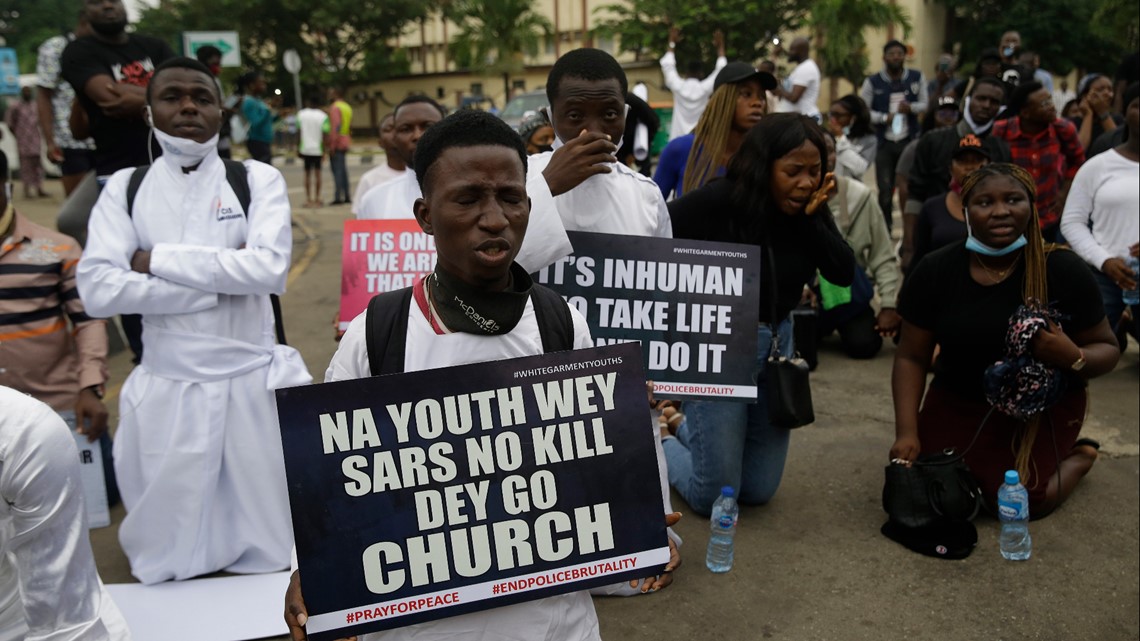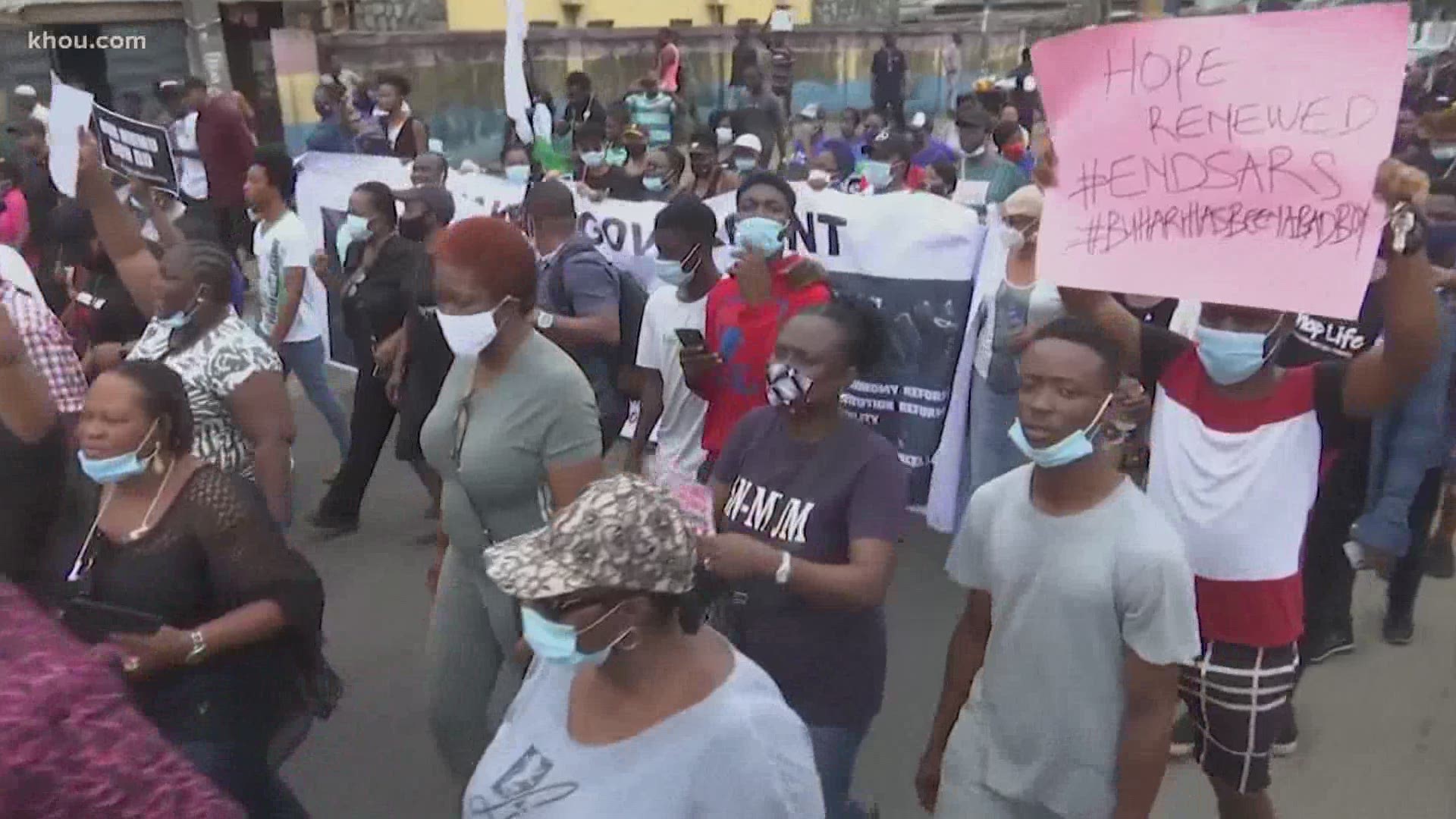LAGOS, Nigeria — Resentment lingered with the smell of charred tires Friday as Nigeria’s streets were relatively calm after days of protests over police abuses, while authorities gave little acknowledgement to reports of the military killing at least 12 peaceful demonstrators earlier this week.
President Muhammadu Buhari in his first comments on the unrest didn’t mention the shootings that sparked international outrage, instead warning protesters against being used by “subversive elements” and “undermining national security and law and order” during a national address Thursday night.
An angry crowd shouted at the governor of Lagos state, which encompasses Africa’s largest city, as officials toured burned-out vehicles and the sacked palace of Lagos’s ceremonial leader Friday. Meanwhile, Buhari met with former presidents and top officials on how to move forward from some of Nigeria’s worst unrest in years.
This week’s scenes of flag-holding protesters scattering amid gunfire have touched a chord with Black Lives Matter supporters in the United States, while the U.S. government has strongly condemned the “use of excessive force by military forces who fired on unarmed demonstrators in Lagos, causing death and injury.”
The military opened fire without warning on thousands of peaceful protesters singing the national anthem Tuesday night, killing at least 12 people, according to Amnesty International.
The protests turned violent Wednesday after the shooting as mobs vandalized and burned police stations, courthouses, TV stations and a hotel. Police battled angry crowds with tear gas and gunfire. The looting and gunfire continued Thursday.
The Lagos deputy governor, Kadri Obafemi Hamzat, told a local radio station Friday that the peaceful protests with an understandable grievance had been hijacked by hoodlums.
The demonstrations began early this month with calls for Nigeria’s government to shut down the Special Anti-Robbery Squad, a police unit known as SARS. The squad was launched to fight crime, but it carried out torture and killings, according to Amnesty International.
The #EndSARS campaign spread across the country and Buhari’s government announced that it would disband the SARS unit. The protest persisted with demonstrators calling for more widespread reforms of the police and an end to corruption.
In one attempt at calming tensions on Friday, the Lagos state government shared a list of ongoing prosecution against police officers accused of human rights abuses.
“Today seems like a good day to get on to the work of rebuilding Lagos and ending police brutality,” Gov. Babajide Sanwo-Olu said.



